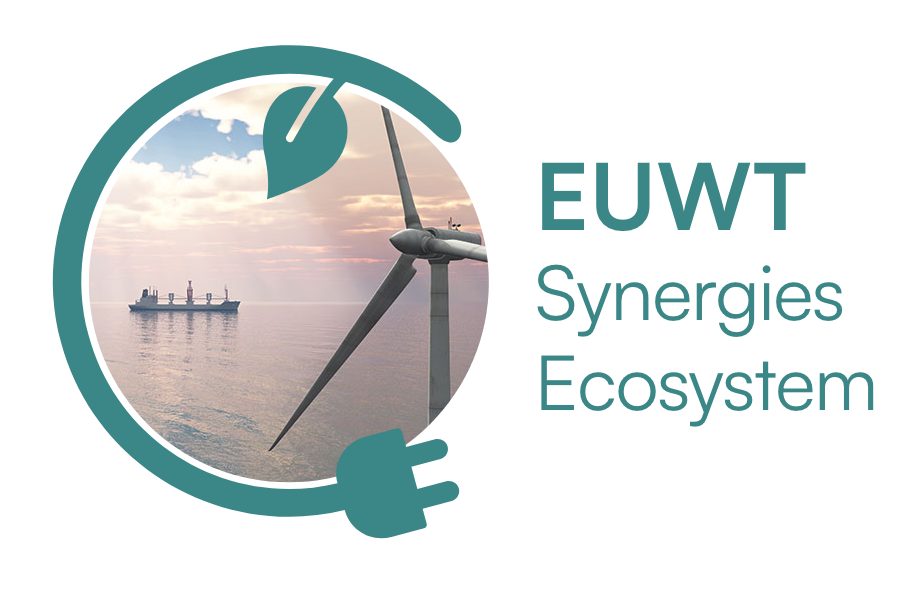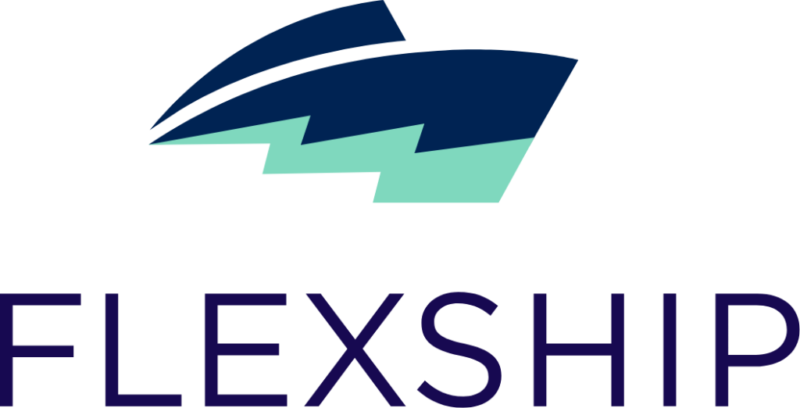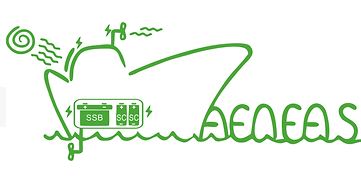Linked projects
The following project are linked with SEABAT.

EU Waterborne Transport – Synergies Ecosystem (EUWT-SE)
In November 2023, three EU-funded projects, FLEXSHIP, HYPOBATT and SEABAT came together and started a collaboration with the aim of identifying common areas of interest, explore ways to adopt best practices and to enhance their project results for the benefit of waterborne transport.
Being the initiative open to other parallel/similar EU funded projects, since the beginning of 2024 EUWT-SE has welcomed other three projects, AENEAS, NEMOSHIP and DT4GS, as new participants in this compelling initiative which will further boost the results of all the involved projects.

FLEXSHIP
FLEXSHIP (Flexible and modular large battery systems for safe on-board integration and operation of electric power, demonstrated in multiple type of ships) aim is to develop and validate safe and reliable, flexible, modular, and scalable solutions for electrification of the waterborne sector. (link to visit project website)

AENEAS
AENEAS is and Research and Innovation Action and aims to achieve climate neutrality, the European Green Deal sets an ambitious strategy for a 90 % reduction in transport emissions by 2050. This includes waterborne transport systems. In this context, the EU-funded AENEAS project will focus on increased and early deployment of climate-neutral energy storage solutions and significant electrification of shipping. (link to visit project website)

HYPOBAT
HYPOBATT (Hyper powered vessel battery charging system) the European project has brought together 18 key players from the European maritime sector. The aim is to develop a fast charging system for ships and demonstrate it at selected locations. Initially, the ferry service between the North German ports of Norddeich and Norderney will be electrified. (link to visit project website)

DT4GS
DT4GS (Open collaboration and open Digital Twin infrastructure for Green Smart Shipping) is aimed at delivering an “Open Digital Twin Framework” for both shipping companies and the broader waterborne industry actors to tap into new opportunities made available through the use of Digital Twins(DTs).The project will enable stakeholders in shipping to actively embrace the full spectrum of Digital Twins innovations to support smart green shipping in both the upgrade of existing ships, as well as the building of new vessels. For further info you can visit the DT4GS project website.

NEMOSHIP
NEMOSHIP is an Innovation Action (IA) project awarded under the Horizon Europe programme. The project started in early 2023 and has a 4 years duration.
The ambition of NEMOSHIP is to develop, test, demonstrate new innovative technologies, methodologies and guidelines to better optimise large electric battery power technology within hybrid and fully electrical ships. (link to visit project website)

HELIOS
Electric batteries are a strategic driver within the European Union quest for the transition to a clean and digital economy. An essential key enabling technology to the automotive sector’s competitiveness in the global market, the European Commission is investing in ground-breaking battery and electric vehicles (EVs) know-how to make Europe a leader in their sustainable production and use.
Applying a holistic circular approach, the HELIOS project investigates optimal eco-designs and advanced processes to both enhance and demonstrate innovative, lighter and eco-friendly hybrid Li-Ion-based battery packs for mid-size vehicles and city busses.
HELIOS believes that a new concept of standardised, modular and scalable battery pack is possible, and that it will be efficient for use in a varied range of applications. Capitalising on advanced materials and top-notch modelling Big Data and Information and Communication Technologies (ICTs), the new battery pack is expected to combine improved autonomy and charging performance with enhanced safety standards and a minimum carbon footprint. (link to visit project website)

ALBATTS
ALBATTS The European workforce will be disrupted or highly affected by the change brought about by the transfer to electromobility. There will be a need for new training/ reskilling programmes, adapted to the emerging jobs needs.
The Alliance for Batteries Technology, Training and Skills (ALBATTS) aims to be a major contribution to the green mobility in Europe. As the European battery value chain is being developed, organisations from the demand and supply side of skills/competences are brought together, to establish a blueprint for preparedness of future skills across Europe. (link to visit project website)

BlueBARGE
The BlueBARGE Consortium, led by the American Bureau of Shipping, is dedicated to designing, developing, and demonstrating an optimal power barge solution for supplying electrical power to moored and anchored vessels offshore.
In alignment with the EU’s goals to reduce greenhouse gas emissions by 2030 and the strategies outlined by the International Maritime Organization (IMO) to cut sector emissions by 50% by 2050, BlueBARGE aims to provide a high-readiness and complete ‘power bunkering’ solution, poised for commercialization by 2030. (link to visit the project website)